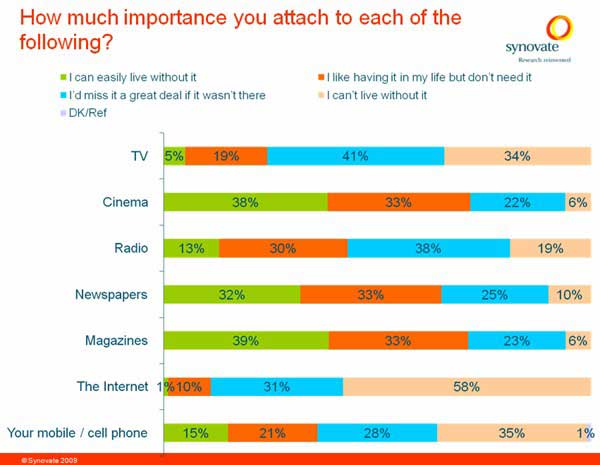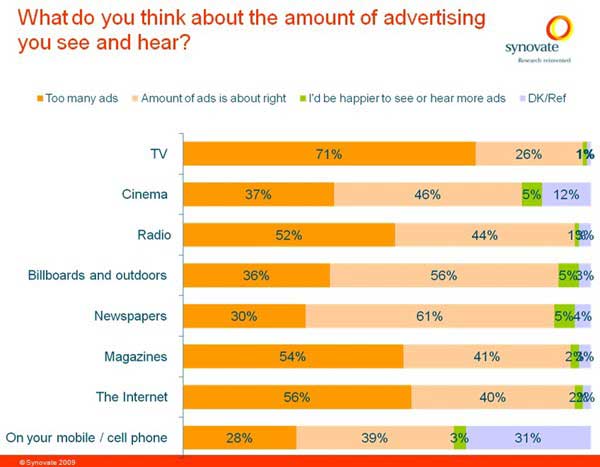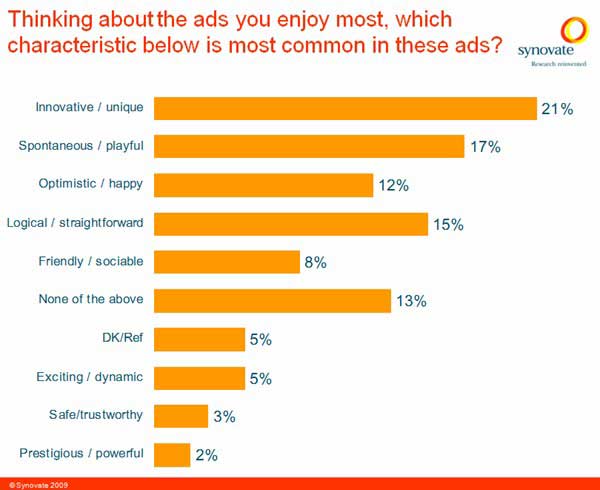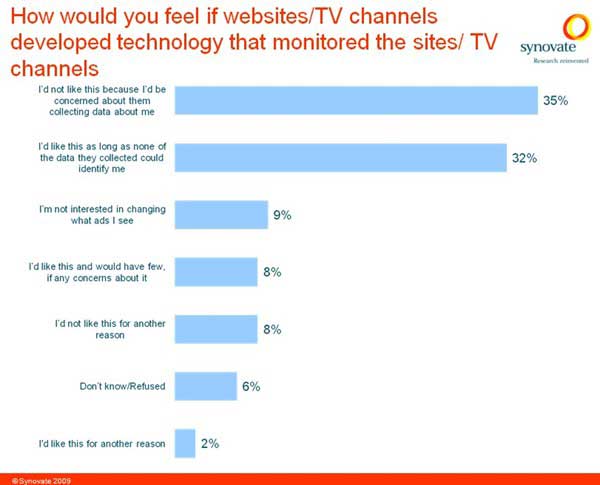Americans can't live without the Internet and television; they prefer advertisements that are innovative and playful; and they are open to new technologies that monitor their media usage if privacy is ensured, according to a recent study by Synovate.
Nearly nine out of ten US consumers (89%) say they could not live without the Internet or would miss it a great deal if it weren't there, while 75% say the same for TV, and 63% say so for mobile phones.
In contrast, one-third of consumers say they don't need newspapers in their lives and 39% say they can easily live without magazines.

Too Much Advertising
Across all global markets, people say there are too many ads on television. Among US consumers:
- 71% say there are too many ads on TV.
- 44% say they skip ads more often than they did a year ago by turning down the TV, changing the channel, or fast-forwarding through commercials.
- 52% say they would be willing to watch the ads if paid to watch them, such as through money off their cable TV bill.
Over one-half of Americans (56%) say there are too may ads on the Internet and 41% say they avoid websites with intrusive ads more often than they did a year ago. Another 52% say they would be open to seeing more ads on the Internet if paid to do so.
Over one-third of consumers (39%) say the amount of mobile ads they see now is sufficient, while 54% say they would not accept more ads via their mobile devices even if paid to do so.

Making Ads Work Harder and Better
Ads that are innovative and unique are among the most well-received, with more than one in five (21%) of global and US consumers preferring them.
In addition, consumers across all markets prefer ads that are fun and light-hearted. Among US consumers:
- 21% say they prefer innovative and unique ads.
- 16% prefer spontaneous and playful ads.
- 14% prefer optimistic and happy ads.

Appetites for Behavioral Marketing
US consumers were asked how they would feel if websites and TV channels were to develop technology that monitors what they use and watch, so that they would be shown ads only for brands and products that are of interest to them.
Nearly one-third (32%) were receptive to the idea, as long as the technologies did not collect personal data that could identify the consumer individually. Another 35% seemingly unconvinced that they would not be individually identified, were not receptive .

Social Media Findings: US vs. Global Consumers
Americans use social media less to promote brands or ads compared with other global markets: 8% of US consumers (13% globally) say they are discussing ads with their friends more than they did a year ago, while 8% of Americans (11% globally) are searching more for ads online, such as on YouTube.
Some 63% of Americans (68% globally) say they have never promoted a brand on their social networking page, although 9% of Americans say they are doing so more often than a year ago.
The number of people following brands on Twitter remains low, with only 4% of Americans (5% globally) saying they do so.
About the data: The survey of 8,600 respondents in eleven countries was conducted in September 2009 by Synovate.



